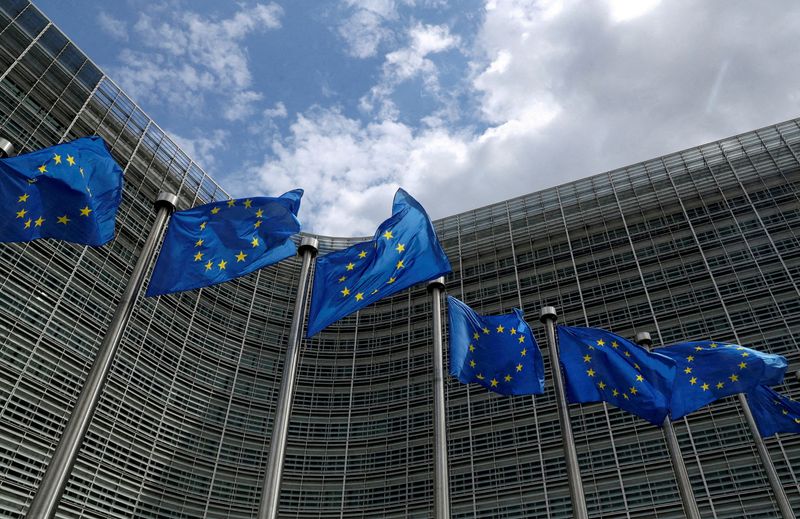By Jan Strupczewski
BRUSSELS (Reuters) -European Union governments agreed on Wednesday to an 11th package of sanctions against Russia over its invasion of Ukraine, aimed at stopping other countries and companies from circumventing existing measures.
The new package, tweeted by Sweden as EU president, forbids transit via Russia of an expanded list of goods and technology which might aid Russia’s military or security sector.
The biggest novelty, diplomats said, was enabling restrictions on the sale of sensitive dual-use goods and technology to third countries that might sell it on to Russia. Names of such countries can be added to an annex of the EU sanctions regulation with unanimous agreement of all 27 members.
EU officials have long been concerned about a surge of demand for EU products from Russia’s neighbours like Armenia, Kazakhstan or Kyrgyzstan and from the United Arab Emirates, Turkey or China.
Moscow justifies the war on Ukraine as an existential battle for its own security and says the West is failing in an aggressive attempt to strangle its economy and crush its power.
The EU package extends the suspension of EU broadcasting licences of five Russian state-controlled media.
To curb the practice of ships loading Russian crude oil or petroleum products at sea, the package bans access to EU ports for ships which engage in ship-to-ship transfers if there is cause to suspect the cargo was of Russian origin.
GREECE, HUNGARY DROP OBJECTIONS
The package adds a further 71 persons and 33 entities to those banned from the EU and with EU assets frozen, for involvement in illegal deportation of Ukrainian children to Russia.
The deal, in the making since April, had been held up by objections from Hungary and Greece over the listing by Ukraine of some of their companies as sponsors of war, because they did business with Russia or in other ways contributed to Moscow’s war effort.
Overnight, Ukraine removed the five Greek shipping firms from its list, securing the backing of Athens for the package.
Hungary backed the new sanctions even though its OTP bank stayed on the Ukrainian list, but said it would return to the issue when the EU discusses a new tranche of money for Ukraine from the European Peace Facility, diplomats said.
Another controversial issue, which held up Germany’s backing, was the inclusion in the draft of the names of eight Chinese companies, which the EU believes were selling Russian goods that could help its war.
The names were leaked in early May and since then, after high-level contacts between the European Commission and China, Beijing made a commitment to put pressure on these companies to stop their activities, diplomats said.
As a result, five were taken off the list. The three remaining, registered in Hong Kong and little known, were suspected of being Russian-owned, diplomats said.
(Reporting by Julia Payne, Sudip Kar-Gupta, Gabriela Baczynska, Jan Strupczewski, Brenda Goh in Shanghai; editing by Philippa Fletcher)
